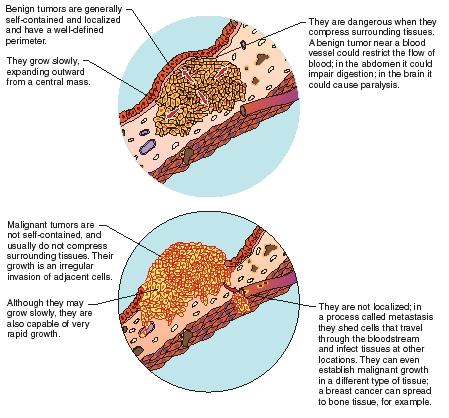
A benign tumor isn't actually cancer, which is a kind of tumor that invades nearby tissues. It doesn't spread into nearby organs or invade other parts of your body like cancer can. However, in some cases, the outlook for benign tumors is quite good.
But benign tumors also can be potentially very serious if they invade vital organs or connect with vital internal systems. The worst case scenario for a benign tumor could be death. In such a case, your doctor may refer you to surgery in order to remove the tumor. If there is a significant amount of time left, they may try to remove the tumor through more natural means. This may involve surgery to remove the tumor through an incision or through a smaller opening in your body.
Usually, benign tumors to grow in areas where there is a lot of fluid and small pockets of tissue. This can include the breast, neck, face, and stomach. A person who has a benign tumor can also develop symptoms like swelling, pain, or tenderness in these areas. Sometimes, the presence of a tumor may even be a sign of other health conditions. It's important that you discuss these symptoms with your doctor.
When a tumor develops in the face, it's called a facial polyp and is caused when small cancer cells grow in the facial bones. Your doctor may use an endoscope to remove these cysts. The treatment can range from removing them using a scalpel or a laser to removing them surgically through a small incision. If the face of someone you care about shows unusual changes in appearance or if the tumor has increased in size over time, you should talk to your doctor right away.
Benign tumors can cause problems in several ways. In some cases, these cysts can break loose and go through the blood stream, potentially harming the person who has them. Some of these cysts may even be cancerous and require surgical removal.
Another common cause of a benign tumor is a growth that develops on the skin, usually a mole. People who have a mole or any other type of mole can develop a benign tumor. Mole growths are particularly dangerous because they develop deep inside the skin. These tumors are also more likely to grow into deeper layers of skin and may break free, traveling through the blood stream and causing infection or even spreading to neighboring tissues.

Lymphatic tumors, on the other hand, are a type of benign tumor that grows in the lymphatic system. The cause of lymphatic cancer may be a tumor that's growing on the lung or in the lymphatic system. They can either be found in the bone marrow or in the blood stream.
Benign tumors are not always dangerous
Some of them can be removed with surgery or other methods as long as they do not interfere with any bodily functions. But if a tumor develops that causes symptoms in humans, it is best to consult a doctor right away.
You may not realize that some treatments for benign tumors are not always effective. There are some drugs that are given against tumors in the hope of killing them. However, many of these drugs can cause serious side effects.
Common treatments for facial tumors that doctors prescribe may include surgery, chemotherapy, and radiation therapy. In addition, you may be given medication that shrinks the tumor, slows its growth, and may even shrink it. You may also be given hormone therapy to shrink or stop the growth of the tumor. However, the results of all these treatments are not always complete.
If the person has cancer, surgery may be the only treatment option. When the tumor has spread to other areas of the face, neck or back, surgery may be an option. Your doctor may remove the tumor with a very large incision and then place it under anesthesia, which will prevent the tumor from spreading to the nerves and other surrounding tissues.
Surgery, chemotherapy and radiation can be used if a tumor grows to an extent that no surgery can remove it. Surgery may also be used if the tumor is malignant. Chemotherapy and radiation may be used in combination with surgery, depending on what's causing the cancer in the face.

